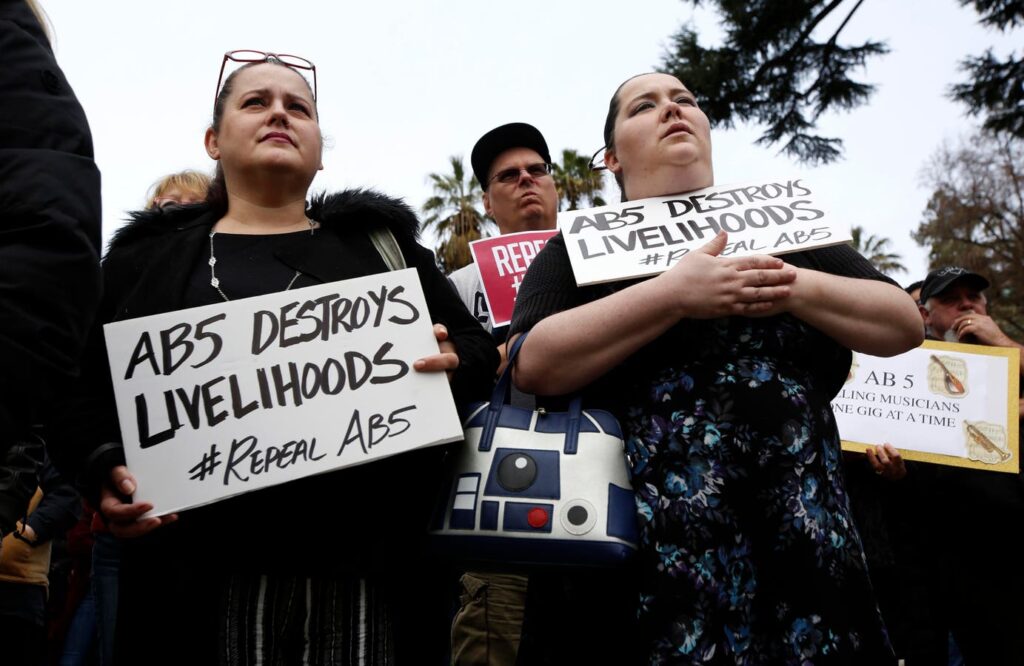For some years, various political and economic groups — typically aligned with Democrats — have pushed for laws and labor rules that would make it difficult for independent contractors to continue their businesses. Now Donald Trump has nominated a candidate for Secretary of Labor who has been a strong proponent of the reclassification efforts that would potentially undermine independent contractor status and interfere with their abilities to run their businesses and gainfully employ themselves.
Legal pressures
In various ways, those groups have promoted a framework from the 1930s called the ABC test. California, which incorporated the standard into a disastrous law, explained the three-point test this way:
· A: “The worker is free from the control and direction of the hiring entity in connection with the performance of the work, both under the contract for the performance of the work and in fact;”
· B: “The worker performs work that is outside the usual course of the hiring entity’s business; and”
· C: “The worker is customarily engaged in an independently established trade, occupation, or business of the same nature as that involved in the work performed.”
The B portion is the problem for many millions of real independent contractors, not the employees that companies try to force into a false independent status to save on many taxes and bypass many protections provided to workers through federal and state labor law. Members of the second group are employees and should be treated as such. Existing law has long allowed the Department of Labor to investigate potential cases of miscategorization. State departments of labor generally can take similar actions.
But for actual independent consultants, the B prong is terrible and could make it impossible for someone to work. That would hold true whether you’re an independent journalist writing for national media, a truck driver taking trailers hitched to your cab cross country, a software engineer, a court reporter, a translator, real estate agent, or any of many careers that often operate as independent contractors.
How ABC has worked so far
California’s AB 5 bill, which was written by union-affiliated people in the state’s legislature to use the ABC test, was meant to cast a wide net and prevent companies from classifying workers as independent contractors. The result was disastrous as thousands of people with long-established contracting or freelancing businesses were suddenly unable to make a living. The legislature ultimately made many exceptions, but it wasn’t enough.
Research out of the Mercatus Center at George Mason University, a research group working from an assumption of free market philosophy, did some research on what happened after AB5 was passed. “AB5 did not simply alter the composition of the workforce as intended by policymakers. Instead, AB5 resulted in a significant decline in self-employment and overall employment in California:”
The groups that backed these concepts expanded their efforts to other states and, eventually, to the country as a whole with the PRO Act, proposed legislation that would supposedly make it easier for workers to organize, but which also incorporated the ABC test. Democrats in the Senate lacked the majority size they needed to pass the act, although according to Politico reporting, unions essentially warned them to pass the legislation “or else.”
Moving to DOL rules
As the legislative effort ultimately failed, the Biden administration decided to implement as much as it could through rule changes for the Department of Labor. The DOL, under acting Secretary Julie Su (there weren’t enough votes in the Senate to confirm her and Biden wouldn’t offer another), proposed a rule that would effectively sneak in aspects of the ABC test through regulatory discretion.
When Trump won the election, many independent contractor advocates thought the new administration would rework the rules and establish protection for legitimate independent contractors.
Many of these people were stunned when Trump announced that his pick for Labor Secretary was Lori Chavez-DeRemer. The Associated Press described her as “an enthusiastic back of the PRO Act” with “a clear record on workers’ rights and organized labor issues.”
It’s hard to know whether this will continue pressure on independent contractors. On the campaign trail, Trump tried to position himself as a friend of the working class. But then, in his first administration, he “chose business-friendly appointees to the National Labor Relations Board” and “backed policies” that would have hindered unionizing workers.
What will happen is unlikely to be known until early in 2025, but there is a chance that the uncertain status of independent workers will continue.
Read the full article here
